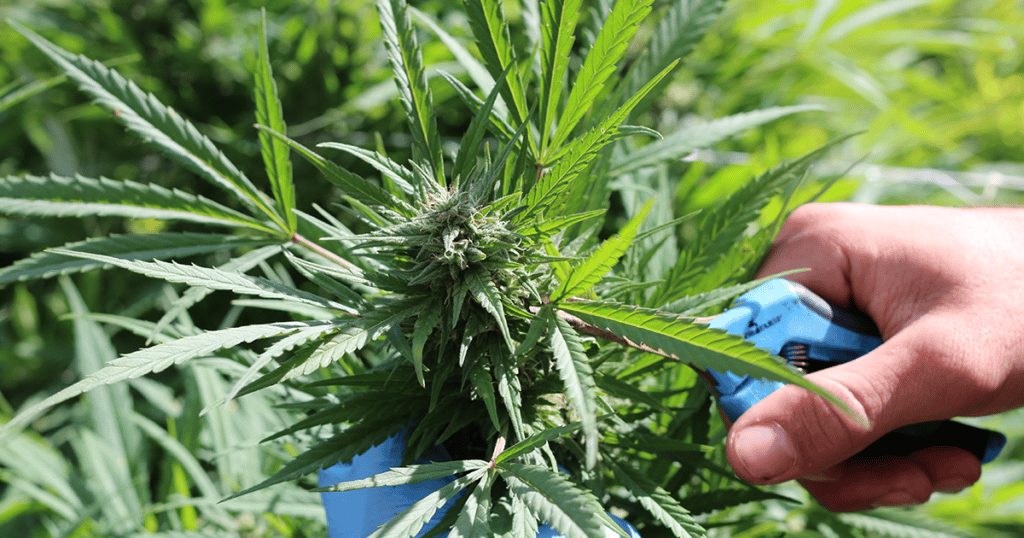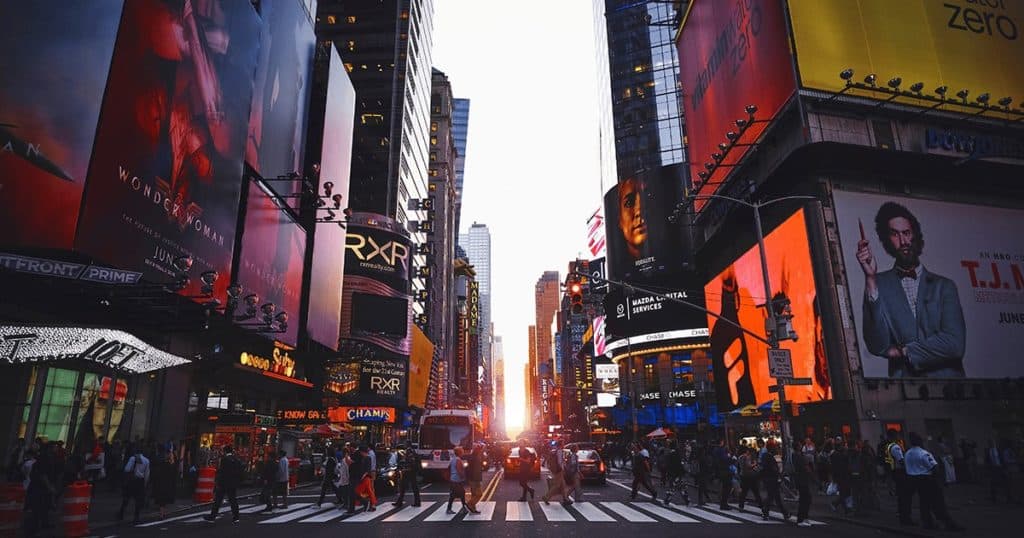In a long-awaited move that comes more than a year and a half after the state legalized marijuana for adult use, New York officials authorized the first batch of recreational marijuana store licenses on Monday.
According to OCM executive director Chris Alexander, the first round of licenses is intended to promote social and economic equity and goes to applicants convicted of marijuana-related offenses when the drug was still illegal and who resided in a neighbourhood that was disproportionately affected by the prohibition.
On Monday, the Cannabis Control Board (CCB) also approved additional market regulations.
Just days after regulators chose ten teams of companies to build up around 150 turnkey storefront facilities for the social equity marijuana shops to operate out of once the market formally began, they approved the first 36 dispensary licenses and a package of guidelines for the industry.
Officials have pledged that the first authorized dispensaries will operate before the end of 2022, less than six weeks away, although New York is now awash in illegal merchants.
Surprising Progress
Until recently, the concept of New York legalizing cannabis seemed absurd. Now that adult usage is legal, we are creating a market using an equity-driven strategy that fully realizes our lofty objectives. Chris Alexander, executive director of OCM, expressed his delight at the first store approval’s emphasis on persons involved in the criminal system, saying that these people should be the cornerstone of our sector.
This month, the state was on track to swiftly authorize the first Conditional Adult Use Retail Dispensary License (CAURD) dispensaries, according to Axel Bernabe of the Office of Cannabis Management (OCM). That has now taken place. At the conference on Monday, Bernabe discussed how the adult-use restrictions were created to “provide protections for tiny firms that ensure the wealthy and well-connected do not dominate the market.”
However, there is already a snag in the retailer rollout; a recent injunction issued by a federal judge in response to a complaint prevents regulators from temporarily accepting CAURD licenses in specific parts of the state, such as Central New York and Brooklyn. For the time being, CCB has granted permits to 29 dispensaries run by justice-involved individuals and eight charities.
While delivery and social use facility licenses will be dealt with in a subsequent round of regulations, the new rules approved at Monday’s meeting covered a variety of license types, including cultivation, nursery, processing, distribution, retail dispensary, microbusinesses, and cannabis collectives/coops. Additionally, testing, packaging, and enforcement actions are covered in the suggestions.
The regulations will be subject to a 60-day public comment period before becoming formally enforceable.
The proposed guidelines’ treatment of the state’s present medical cannabis firms is particularly noteworthy. These businesses would need to wait three years before the first sales by CAURD licenses commence before they can start selling marijuana for adult use. They would also need to pay an initial $5 million charge for the privilege to do so. Over time, there would also be further charges. The first batch of adult-use marijuana outlets is expected to open by the new year, according to officials, who have stated numerous times in recent months that they are in an ideal position to do so. However, time is running out.
To that aim, officials also declared on Monday that they would permit qualified companies to start selling via delivery. At the same time, they awaited the completion of their storefronts. This would enable these small business owners to earn funding and expand their operations by reviving their sales.

A Win For Social Equity
OCM is proving New York‘s commitment to a genuinely equitable rollout of the adult-use cannabis program and paving the way for these new enterprises to succeed by giving individuals most affected by the state’s failing drug war a way to participate in the legal cannabis market. Their persistent efforts that have brought New York to this point should be commended.
State officials closed the application window for the state’s first cannabis shop licenses in September. Nine hundred and three firms established by people hurt by the drug war filled out and filed their paperwork within that time. Before opening the application pool to other applicants, officials claim they will choose 150 CAURD applicants overall.
Applicants for the special retail license must have experience running a qualifying business and have either faced a conviction for a cannabis-related offense before the state legalized the drug or have a close relative who has. Advocates see this as a positive development that will increase the pool of applicants. Regulators have also broadened the definition of an eligible “justice-involved” individual to include people arrested for marijuana but convicted of a lesser felony. According to authorities, up to 25 CAURD licenses will be awarded to qualified non-profits, “particularly groups with a history of supporting justice-involved individuals and establishing vocational possibilities for them.”
These non-profit organizations would have to run their compliance storefronts since they would not be eligible for the Social Equity Cannabis Fund or access to the state-approved turnkey facilities. The mayor of New York City recently announced a new program to promote cannabis sector equality by assisting entrepreneurs most affected by the drug war in advance of the CAURD license applications opening.
The Cannabis NYC program offers assistance beyond the license by connecting potential cannabis business owners to free services and offering technical support for thriving operations. The initiative’s initial goal is to help potential operators of dispensaries with the licensing application procedure. In August, CCB also authorized the state’s initial batch of licenses for processing recreational cannabis. Additional conditional cultivator applications have been accepted by the board and are now being issued to state-licensed hemp enterprises.
The Homegrow Resolution
The second batch of conditional marijuana processor and cultivator business applications, as well as homegrow regulations for medical cannabis patients, were approved by regulators in September. The medicinal cannabis homegrow resolution was approved nearly a year after the board approved modified guidelines following a public comment period, followed by the draft regulations’ first proposal. Alexander of OCM stated in July that the office carefully considered and addressed public comments on the proposed guidelines for conditional retailers. However, there is still considerable resentment among stakeholders who believe that the input needs to be intelligently implemented.
A poll revealed that the majority of New York voters oppose the idea of giving justice-involved people priority for retail licenses. As the state is ready to open its adult-use market, OCM also recently made public several cease and desist letters they have written to companies allegedly selling marijuana unlawfully. However, questions have been raised regarding the precision of the office’s enforcement efforts. While some companies identified as running illegal marijuana stores claim they never received the letter, others, like one event and catering company, claim they were unfairly singled out and deny ever selling cannabis.

Going Forward
Currently, adults 21 and older are permitted to own, consume cannabis in public, and give marijuana to other adults as long as they are not getting paid for it.
Several suggested regulations for marijuana packaging, labeling, advertising, and testing procedures were also authorized by CCB in June. Despite the continued federal prohibition of cannabis, Hochul recently signed budget legislation that includes clauses allowing marijuana enterprises to claim state tax credits available to other industries.
In December, Sen. Jeremy Cooney introduced a stand-alone bill to create a comparable exception for the State’s expanding cannabis industry. In her chamber, Democratic Assemblymember Donna Lupardo did the same. To boost marijuana banking, Cooney also submitted a measure in May that would permit regulators to provide financial institutions with specific information about cannabis license holders.
Hochul has stressed her desire for the legalization law to be effectively implemented time and time again. The suggestion was also mentioned in the governor’s executive budget, unveiled in January. According to the budget, New York may earn more than $1.25 billion in marijuana tax income over the following six years. Although cannabis business licenses have not yet been approved since legalization was enacted last year, according to Hochul, the market is expected to generate billions of dollars. It is crucial to provide opportunities for all New Yorkers, especially those from historically marginalized communities.
A pioneering taxpayer-funded marijuana advertisement that aired in most of New York during an NBA Finals game in July is just one of the PSAs that OCM has released to encourage public education about the shift in marijuana laws. The public service announcement (PSA) bravely addressed the racially discriminating adverse effects of criminalizing cannabis and emphasized actions state regulators are taking to correct the wrongs of prohibition.
Enjoyed that first hit? Come chill with us every week at the Friday Sesh for a freshly packed bowl of the week’s best cannabis news!















